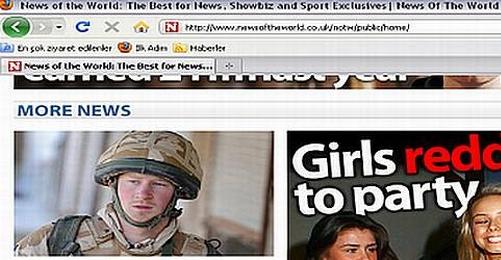The European Court of Human Rights (ECHR) decided that newspapers have not "the legal duty to notify the subjects of intended publications in advance to give them an opportunity to prevent such publications by seeking interim court injunction".
The ruling was the result of the application of Max Rufus Mosley from the UK, former president of the International Automobile Federation. In the decision published on 10 May, the ECHR unanimously decreed that "there had been no violation of Article 8 (right to protection of private and family life) of the European Convention of Human Rights".
In March 2008, the Sunday newspaper News of the World published on its front page an article entitled "F1 boss has sick Nazi orgy with 5 hookers". Several pages inside the newspaper were also devoted to the story which included still photographs taken from video footage secretly recorded by one of the participants in the sexual activities.
On 4 April 2008, Mr Mosley brought legal proceedings against the newspaper claiming damages for breach of confidence and invasion of privacy. In addition, he sought an injunction to restrain the News of the World from making available on its website the edited video footage.
On 9 April 2008, the High Court refused to grant the injunction because the material was no longer private as it had been published extensively in print and on the Internet. In subsequent privacy proceedings before the High Court, the court found that the images did not carry any Nazi connotations. Consequently there was no public interest and thus no justification for publishing that article and accompanying images, which had breached Mr Mosley's right to privacy. The court ruled that News of the World had to pay to Mr Mosley 60,000 GBP in damages.
The application was filed on 29 September 2008. The British Government considered that Mr Mosley was no longer a victim of a Convention violation given, in particular, that he had been compensated by the newspaper as ordered by the UK courts: 60,000 British pounds (GBP) in damages and GBP 420,000 for legal costs.
The ECHR recalled that States enjoyed a certain margin of appreciation in respect of the measures they put in place to protect people's right to private life. Notwithstanding the potential merits of Mr Mosley's individual case, given that a pre-notification requirement would inevitably affect political reporting and serious journalism, in addition to the sensationalist reporting at issue in Mr Mosley's case, the Court stressed that any restriction on journalism required careful scrutiny.
However, looking beyond the facts of Mr Mosley's case, and having regard to the chilling effect to which a pre-notification requirement risked giving rise, to the doubts about its effectiveness and to the wide margin of appreciation afforded to the UK in that area, the Court concluded that Article 8 did not require a legally binding pre-notification requirement. Therefore, its absence in UK law had not breached Article 8, court concluded. (EÖ)
Source: ECHR
Click here to read the ECHR press release.






